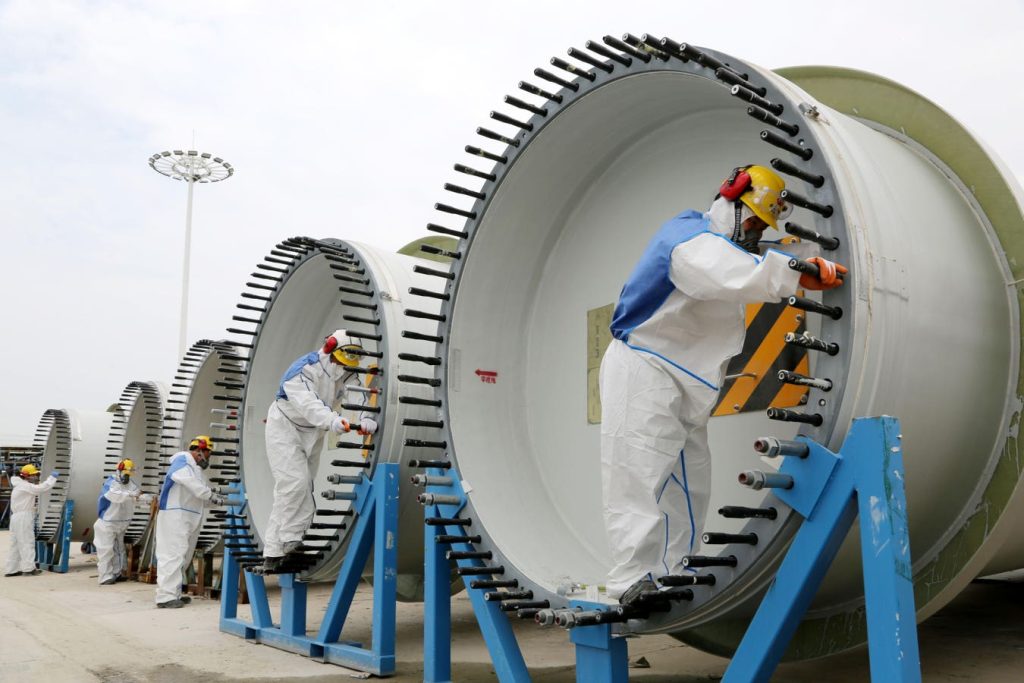Siemens Energy’s CEO, Christian Bruch, recently highlighted the renewable energy sector’s heavy dependency on China for supplies, particularly in the manufacturing of wind turbines. He noted that trying to build a wind turbine without Chinese supplies would be nearly impossible, putting the energy transition in jeopardy. The CEO emphasized the challenges faced by firms needing Chinese parts but also facing competition from complete kits made in China that undercut Western manufacturers. Siemens Gamesa, Bruch’s wind unit, heavily relies on Chinese permanent magnets and rare earths for manufacturing, with limited options for diversifying its supply chain in the short term.
The reliance on Chinese supplies has caused global trade tensions, with the U.S. recently raising tariffs on Chinese electric vehicles, and the E.U. launching an investigation into whether Chinese wind turbine manufacturers receive subsidies that allow them to undercut Western pricing. Germany, Siemens’ home country, has also urged manufacturers to reduce their exposure to China, a stance not universally supported by industrial majors in the country. Bruch stressed the importance of holding Chinese wind turbine manufacturers to the same standards as European companies in the E.U. market to ensure fair competition and harmonious international trade.
Bruch suggested that finding a middle ground between heavy protectionism and a free market approach would be the ideal solution for international trade. He emphasized the need for clear rules on financing, guarantees, and pricing to create consistency in the market. Despite the challenges faced by Siemens Gamesa in competing with cheap Chinese competitors in markets like Latin America and Africa, Bruch expressed his reluctance to advocate for completely departing from or de-risking the Chinese market. Instead, the company is focusing on a turnaround plan for its onshore wind business to target double-digit growth within a few years, aiming to stay competitive in the face of Chinese competition.
Siemens Energy’s CEO acknowledged the critical role of Chinese suppliers in the renewable energy supply chain, particularly in the manufacturing of wind turbines. Bruch highlighted the complexities faced by companies reliant on Chinese supplies while also dealing with competition from complete kits made in China that undercut Western manufacturers. The global trade tensions between the U.S., E.U., and China have added further challenges, with tariffs and investigations impacting the industry. Despite calls to reduce exposure to China, Bruch emphasized the need for fair competition and holding Chinese manufacturers to similar standards as European companies in the common market.
Bruch’s stance on finding a middle ground between protectionism and a free market approach reflects the complexities of international trade in the renewable energy sector. He emphasized the importance of clear rules in terms of financing, guarantees, and pricing to ensure consistency in the market. Siemens Gamesa’s challenges in competing with Chinese rivals led the company to consider an exit from certain markets, but instead, it opted for a turnaround plan to target growth within a few years. Bruch’s reluctance to completely depart from the Chinese market highlights the interconnectedness between regions and the need to find solutions that promote fair competition and sustainable growth in the renewable energy sector.


